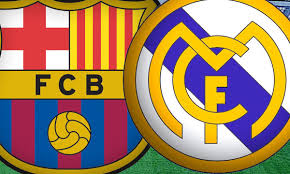By Mark Baber
August 13 – The European Commission is looking into the issue of illegal state aid for Spanish clubs. A complainant, impatient over the delay in the investigation, has followed up with the European Ombudsman who has pressed the Commission for a reply. But there is no truth in the reports that Real Madrid and Barcelona would be forced by the EC to give up their privileged status as member-owned clubs and become plcs.
Infact the obligation under Spanish law for clubs to become Sociedades Anonimas Deportivas (SADs) or Sports Limited Companies is due to be abolished.
Sources in Spain have told Insideworldfootball that the EC investigation into potentially illegal Spanish state aid for football clubs was prompted by complaints from English and German clubs. The complainants, frustrated by the length of the investigation EC’s competition office (now lasting four years), asked the European Ombudsman to step in and speed the process up.
This has led to some reports that Barcelona and Real Madrid could lose their member-owned status.
A spokesperson for the European Ombudsman has confirmed to Inside World Football that the Ombudsman has sent a “friendly solution proposal” to the European Commission. However the document “remains confidential until the Commission and the complainant reacted to the proposal and the Ombudsman finalised his conclusions.”
However, the spokesperson says “I can outline the main point of the proposal: The Ombudsman calls on the Commission to adopt a decision on the complaint about the privileged situation of major Spanish football clubs (which the Commission received in 2009), or else explain properly why it doesn’t.”
The Federación de Accionistas y Socios del Fútbol Español (FASFE) – the federation of associations of Spanish clubs fans, partners and shareholders – a group which defends their clubs’ rights and promotes transparent management, said that Spanish clubs (like those in other countries) receive help from local and regional authorities including changing the use of the land of stadia or training grounds, from sport use or green zone to housing, for them to be sold at a huge profit.
Benefits also include free or at below market price use by the club of stadia owned by the municipality; above market price sponsorship of shirts or naming rights of stadium by municipality or regional government, and sale and (free) lease back of training grounds or trademarks.
In addition, the Spanish government and the Basque provincial governments have in the past been soft on collecting taxes owed by football clubs. This is generally due to the pressure of public opinion, but an agreement has now been signed between the Professional League, the Secretary of State of Sport and the tax authorities to harden the process of tax collection.
These privileges are enjoyed by both SADs and member-owned clubs with the clubs that owe highest figures to the taxman being the SADs, including Atlético Madrid who are by far the biggest debtor.
If the European Commissioner had any real interest in putting an end to the member-only status of Barcelona and Real Madrid (which it apparently doesn’t), he would find a major obstacle in his path in the form of the European Union’s Directive on Services in the Internal Market.
This gives enterprises the freedom to adopt the legal structure for their entity that they see fit and only allows for restrictions to that freedom in domestic law if they comply with all of the following conditions: non-discrimination, necessity, and proportionality.
Another obstacle to any such scheme would be that there are member-owned clubs in many other European countries – for example, there are more in Germany and Sweden than in Spain.
According to the FASFE, the solution to the problem is far simpler than attempting to overturn the basic principles of European law (and upset the large constituency of fans who welcome the opportunity to have a bigger say in their club’s affairs) – and that is to identify and sanction actual cases of illegal state aid.
Spain’s Sports Act which was passed in 1990 imposing the SAD model for professional clubs (and allowing just four exceptions in professional football) runs counter, according to the FASFE, to the European Union’s Directive on Services in the Internal Market and should therefore be removed.
The new Professional Sports Act currently being drafted in Spain is, according to the Secretary of State of Sport Miguel Cardenal, will abolish the obligation for clubs to convert to SAD status when promoted to a professional division, as well as establishing some capital requirements for all clubs to compete in professional leagues no matter what their legal form.
Contact the writer of this story at moc.l1734844034labto1734844034ofdlr1734844034owedi1734844034sni@r1734844034ebab.1734844034kram1734844034

